Today I would like to take you on a whirlwind tour of a town in Sweden. Technically, Jönköping is a city, not a town—it has over 100,000 inhabitants, and is therefore about the tenth-largest city in Sweden. As such, I think it is quite representative of the country as a whole. There is actually nothing random about Jönköping, and I apologize to anyone who was hoping for a story from the Random Travel Club. Perhaps one day.
Jönköping is a place that I had never visited until I had the chance to go there on business recently. I thought that it could be interesting to share with you some impressions of my brief visit, especially since every trip to Sweden provokes myriad reactions in me. After all, this is a country where I lived for many years, and one that I elected to leave three years ago, giving up a very secure and prestigious job.
So let’s take a quick trip.
I flew from Lisbon to Göteborg (Gothenburg). Though it was early, I was still amused by some of the signs at the airport, such as this one suggesting that someone would wish to bring a hand-grenade on a plane, or, even worse: yoghurt.
Arriving at Landvetter in Göteborg, I saw that the tendency of certain names to follow me around was undiminished. After a brief meal of fine Swedish cuisine, I got my bus to Jönköping.
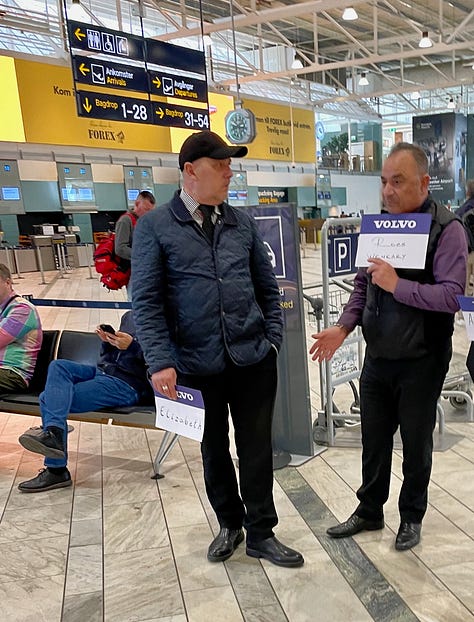
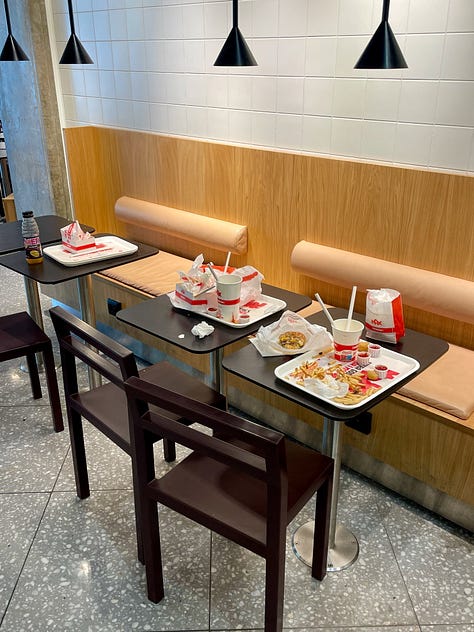

As I mentioned during my recent discussion with Dan Keane, when I stepped out of the airport, the smell of the air immediately said “home” to me. This was my first moment of reckoning with the question of what place Sweden now holds in my life.
Actually, that is a lie. The first moment was emerging into the Landvetter airport, where I used to go to visit my ex-wife when she was my pre-wife. I hadn’t been there in many years, so it was like jumping into a chute leading straight to the past. For those of us who are given to nostalgia, this is not necessarily unpleasant, and the landing is a soft one, but it is important not to spend too much time down there in the stuffy air of yesterday.
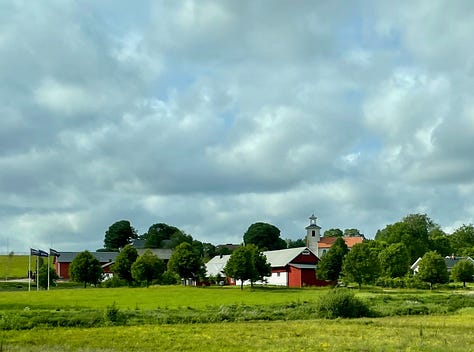
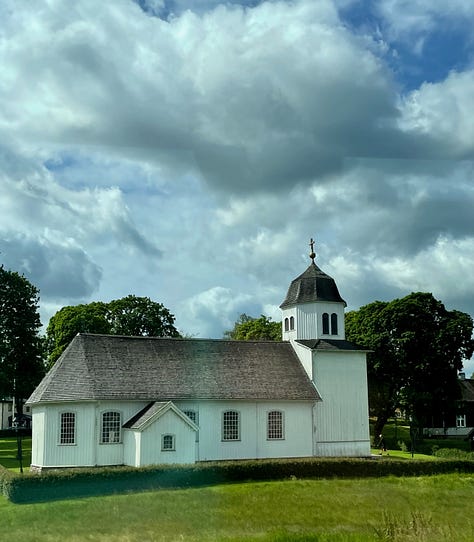
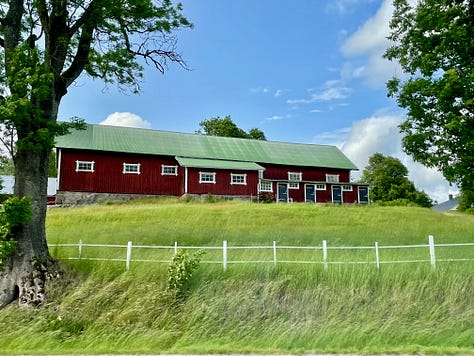
The Swedish summer countryside is lush and spectacularly green. The road was lined with classic old farms and medieval churches.
Arriving in Jönköping is very satisfying, as the city sits at the bottom tip of a long, narrow, and impressively large lake, Vättern, that looks like the sea in much the same way that Lake Michigan does. All modes of transport converge at the station right on the shore of the lake.
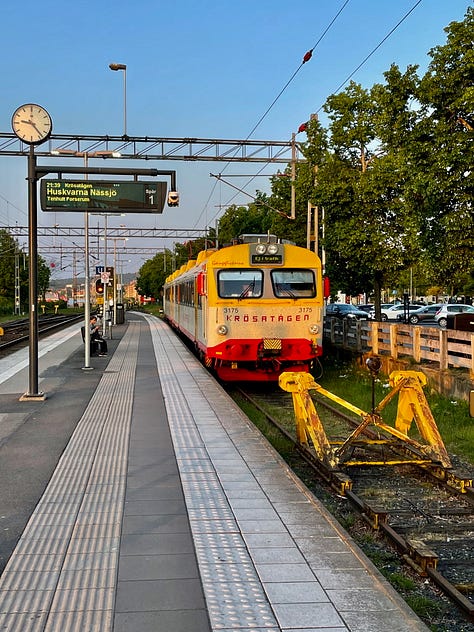
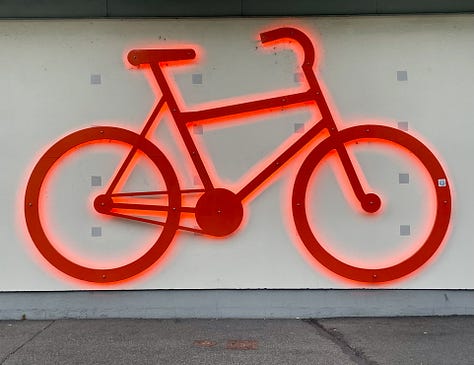
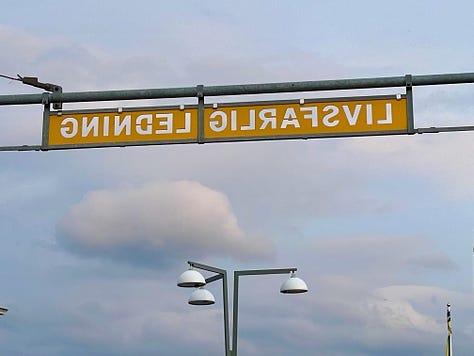
If you ask an ordinary Swede from elsewhere in the country what Jönköping is known for, they will say either industry or Jesus. There are certain industries that have long prospered in the area, such as the famous company Husqvarna. And for many years, Jönköping was at the burning tip of the phosphorus match industry. I found it “striking” that the headquarters of the Swedish Match Company was in a wooden building.
Jönköping is also known for the strength and abundance of its frikyrkor, or non-state (i.e. non-Lutheran) churches. People say it is the most religious city in Sweden. I had no opportunity to test this, however.
The housing stock in Jönköping is exactly as one would expect, featuring the whole range from nineteenth-century wooden villas to mid-twentieth-century high-rise apartment blocks.



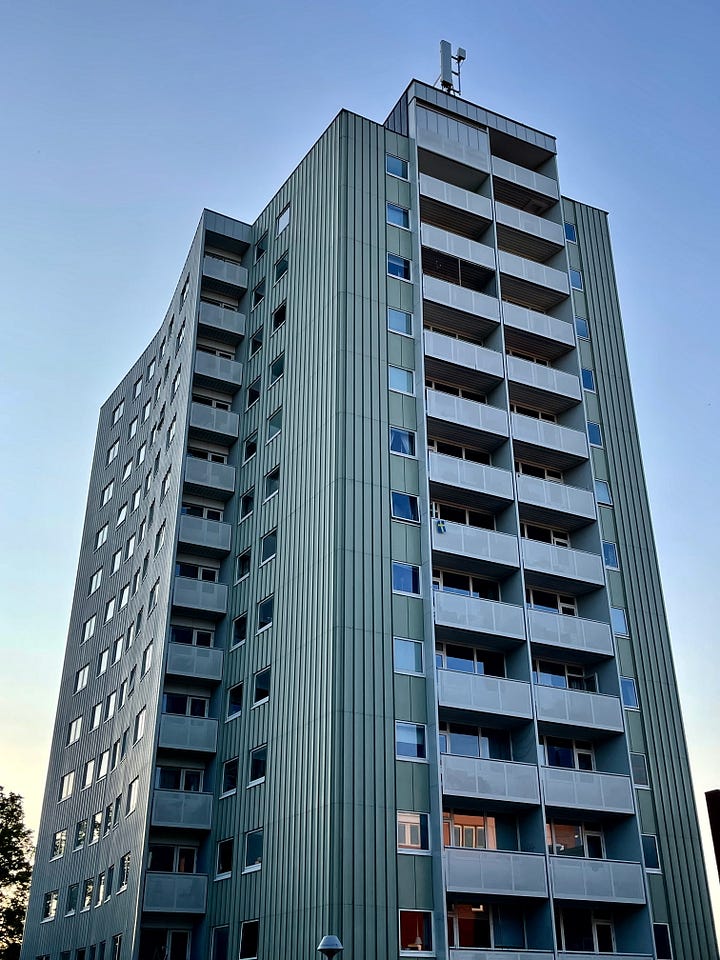
My arrival in Jönköping was undramatic. There was nobody there to receive me, Sweden being a country that is extremely low in hospitality. I was simply to show up a bit before my event the next day, and would be welcomed then and taken to lunch. For the evening, I was on my own. This suited me fine.
I checked into my hotel, which was grand and comfortable, with a hard-to-interpret range of decoration. I was unable to discover a theme.
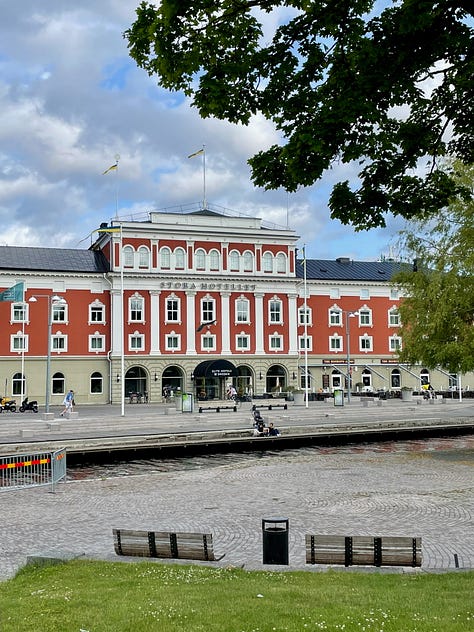
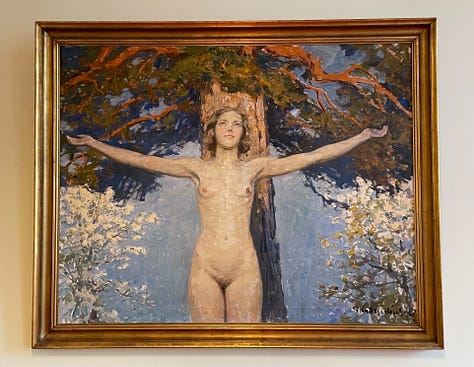
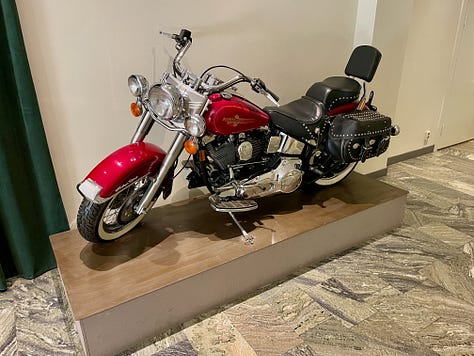
Water is clearly central to the identity of Jönköping. I toured around the area called Munksjön and the marina on the shore of the massive Vättern.
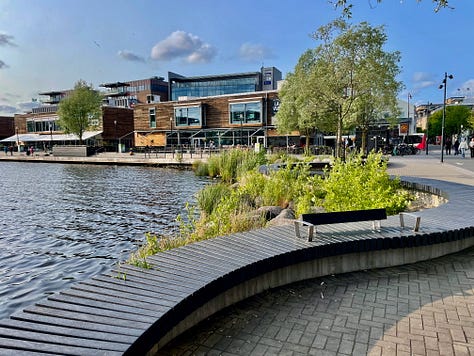

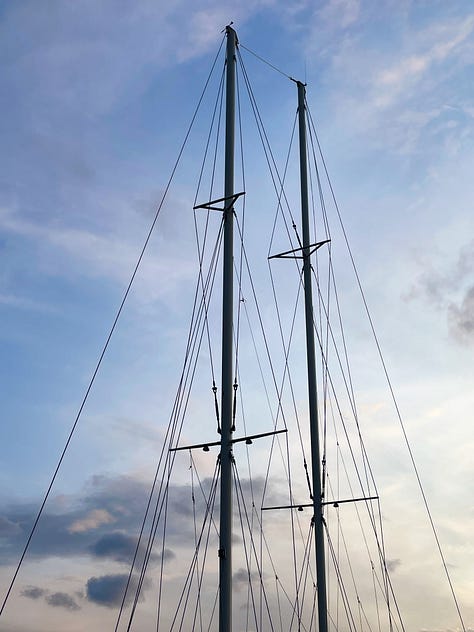
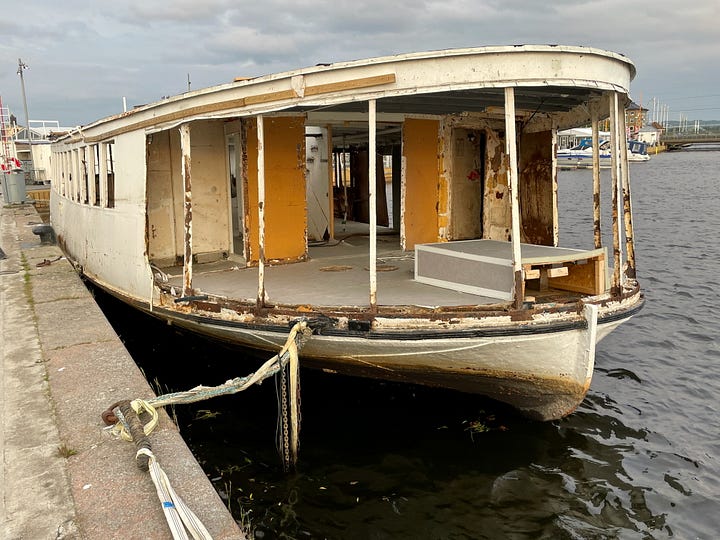
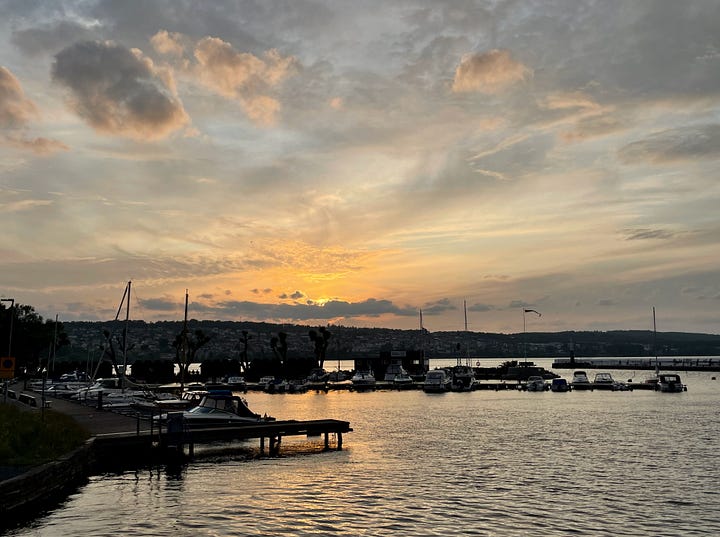
The central part of Jönköping is green and filled with stately old buildings from the nineteenth century (and some even older ones). Being a huge but largely uneducated fan of architecture, I just wandered around and soaked up the variety of styles.
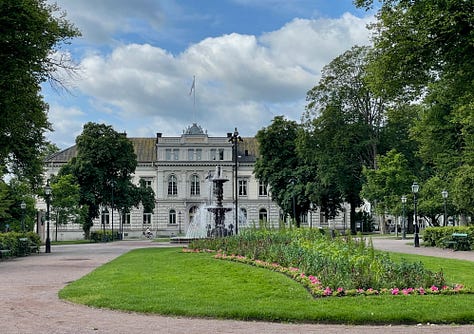
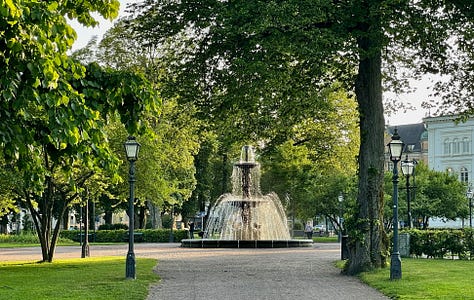


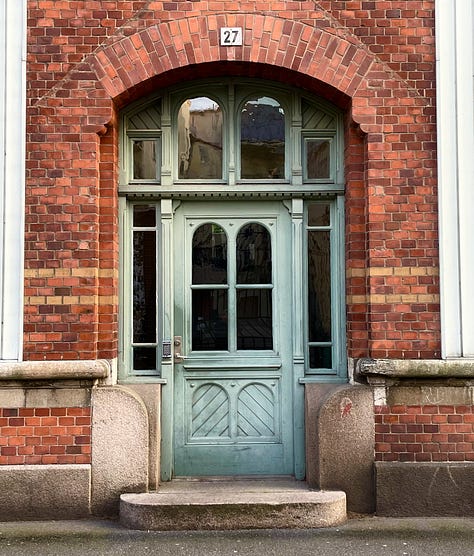

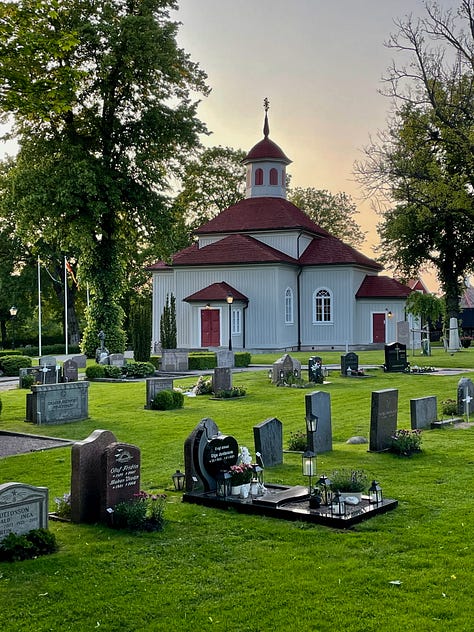
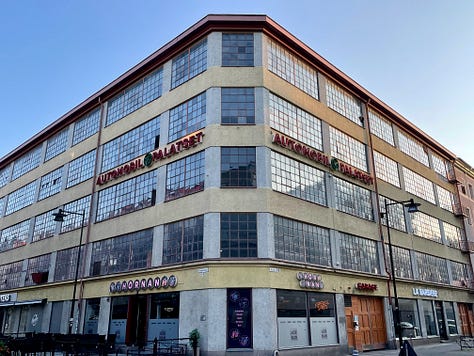

I enjoyed the slogan on the window of the Frälsnings Armén (Salvation Army): soup, soap, salvation. I also mused on what a wonderful thing the soprum is. In Portugal, buildings do not tend to have a dedicated room for garbage cans to live in, which leads to an immense worsening of the environment from the perspective of the eyes and nose.
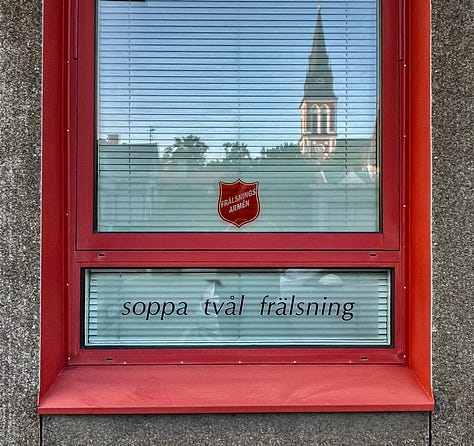
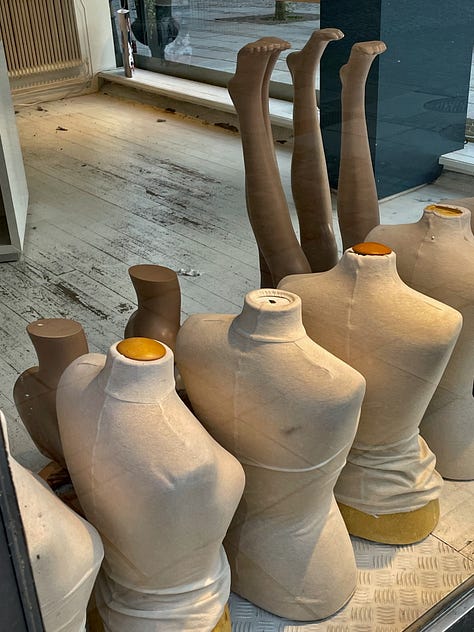
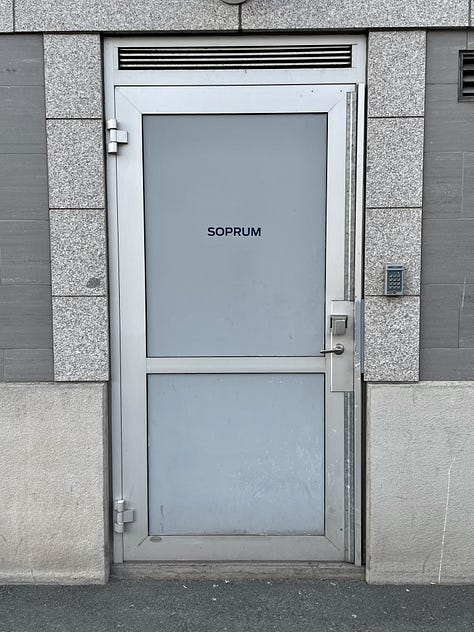
I enjoyed wandering around the city, watching little groups of Swedish families chatting on the street in their bright white sneakers.
But of course, one must eat. I elected to dine at a fairly swish French-themed restaurant. But my gallic resolve weakened when I saw that they served Wallenbergare, a sinful concoction of minced veal, heavy cream, egg whites, and breadcrumbs. It’s like a giant meatball that sends you directly to hell. Washing this down with a glass of French wine that cost about fifteen euros made me feel like I was already on my way. Both the food and the wine were very good, but this was a useful reminder for me of how punishingly expensive it is to eat out in Sweden, which always has the Skinnerian effect of rendering it less enjoyable.

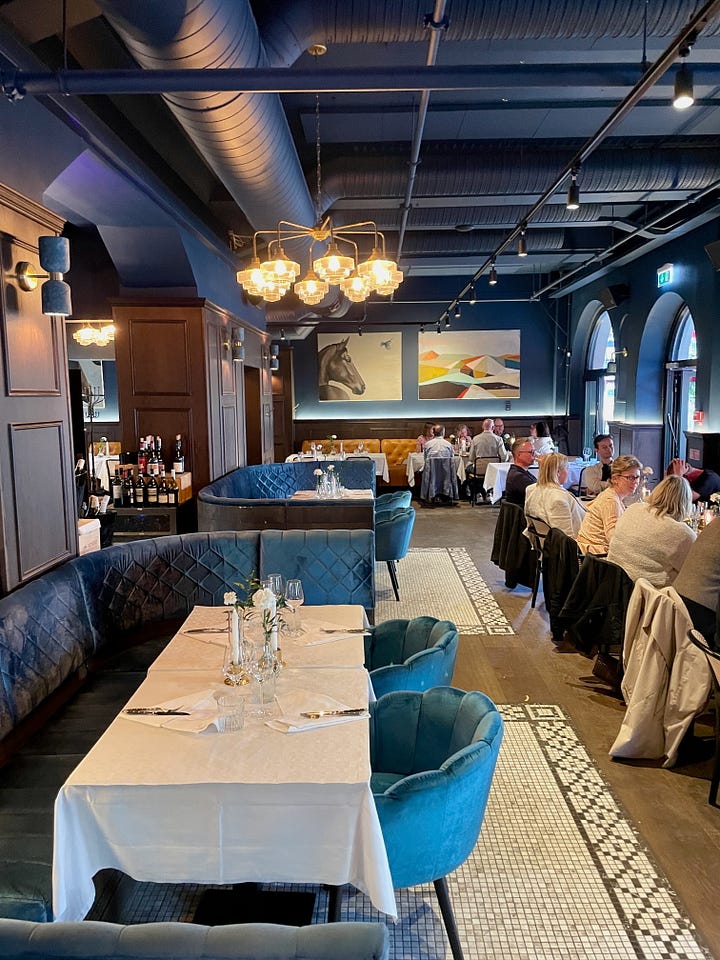
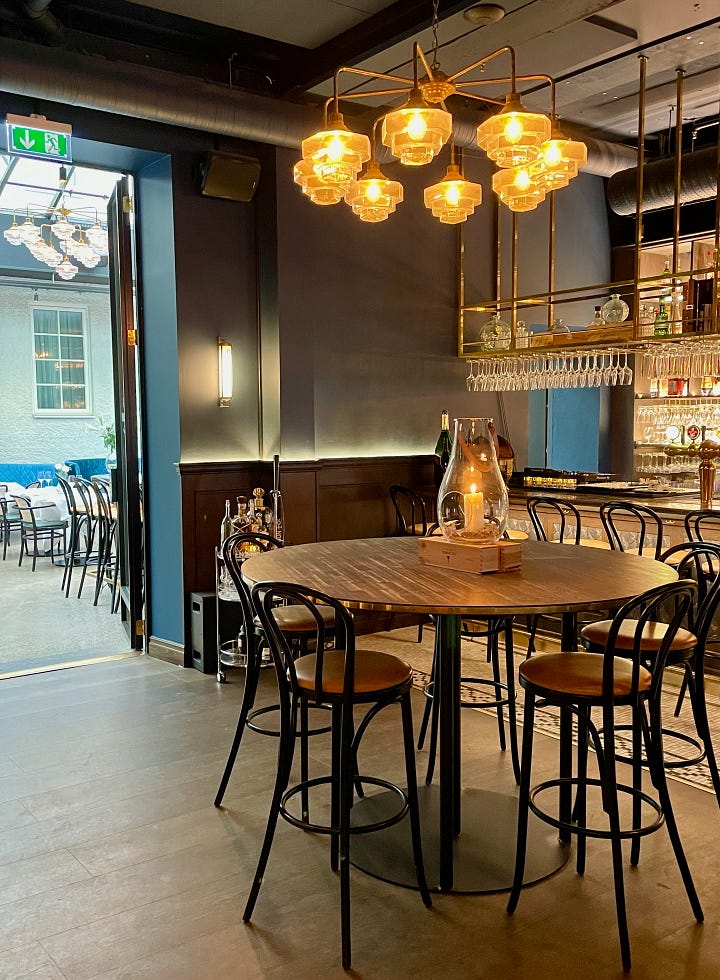

Surely one of the strangest things about Sweden is how every town of a reasonable size will have a main shopping street that is now indistinguishable from the equivalent street in every other town. Walking down Östra storgatan in Jönköping, I felt that I could have been in Uppsala, Linköping, Umeå, Växjö, or even Ystad. It is the same assortment of chain stores everywhere. This crushes my soul a little bit every time I think about it.
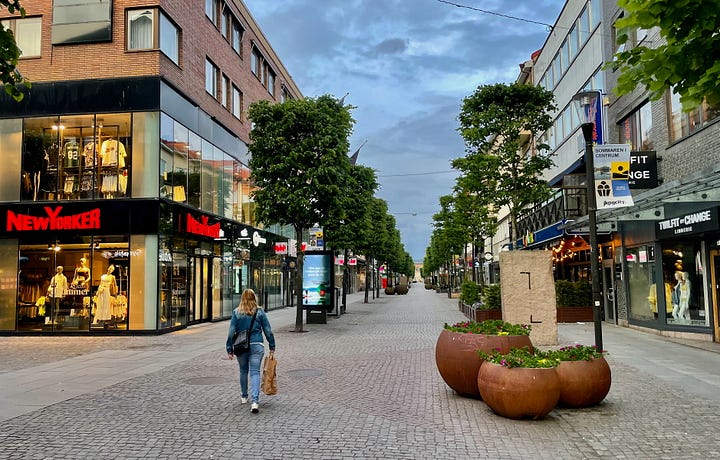
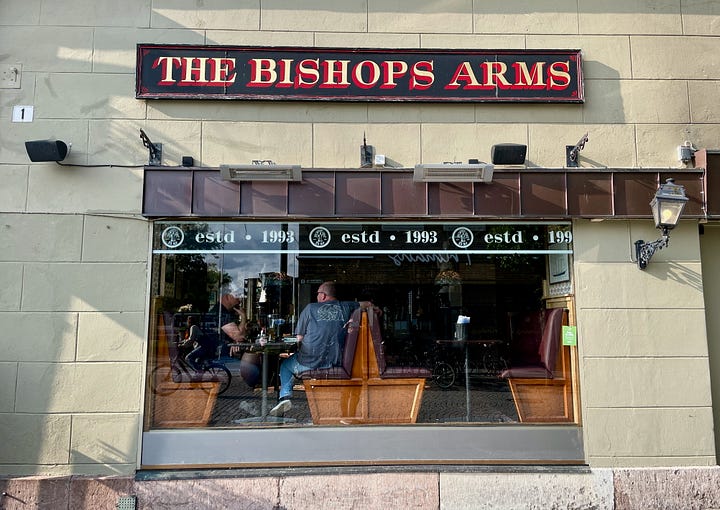
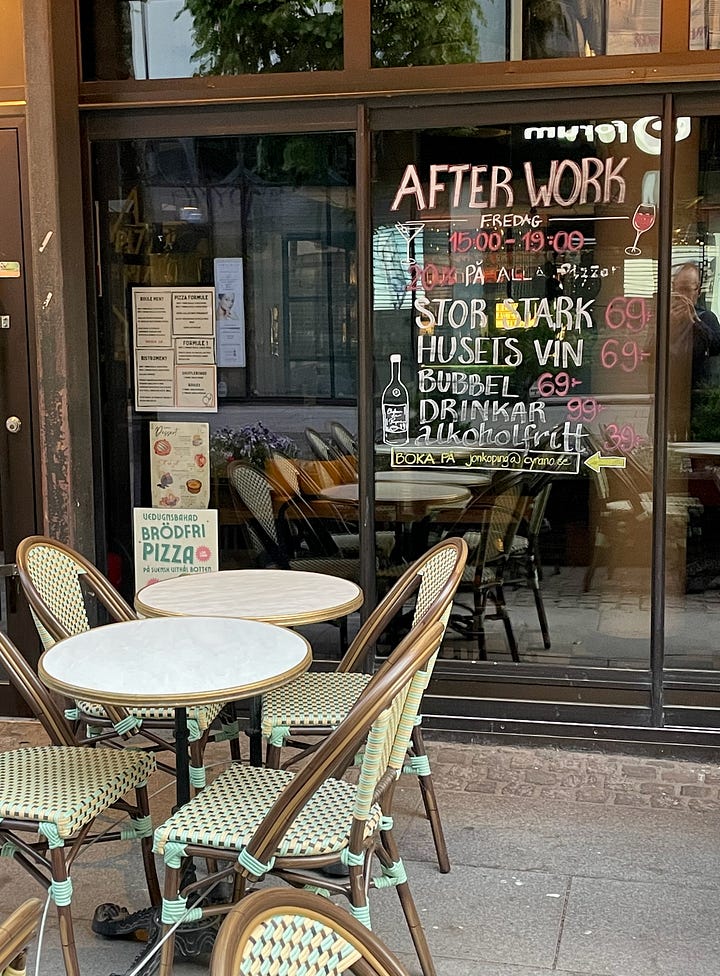
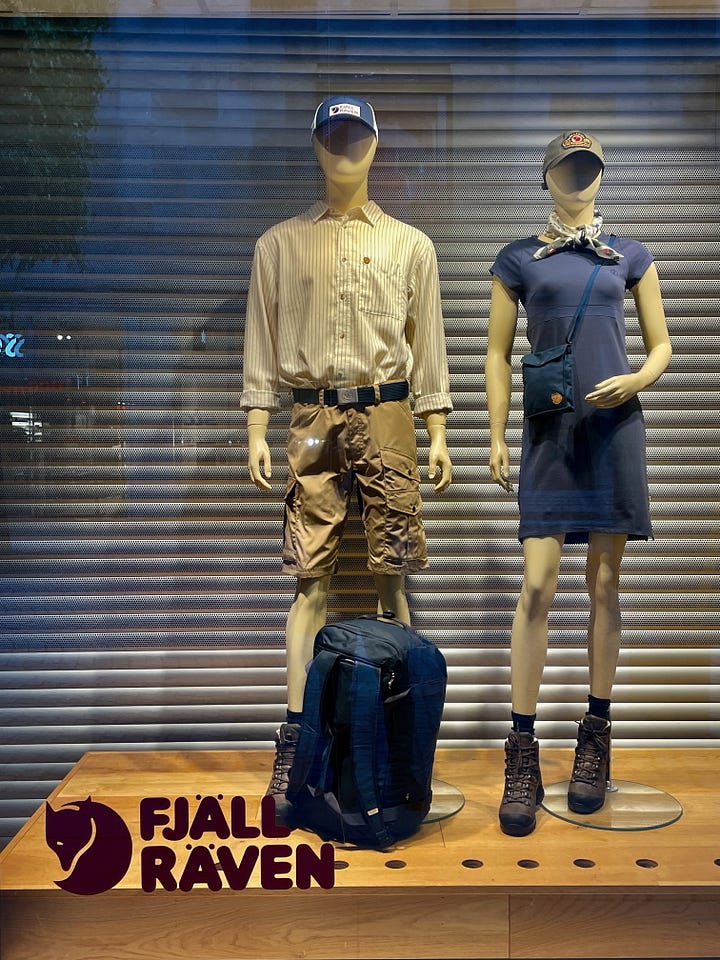
The alcohol culture of Sweden is something I should write about sometime, as it is fascinating along many dimensions. I noticed many signs for happy hour, which in Sweden is called “After Work”, in English, for some reason. They also stress it on the first word, so that it is reminiscent of afterlife. I was frequently asked, “Are you going to the AFTER-work?” I just rolled my eyes, nodded, and went to take out a loan.
Sweden, as you may know, has a state monopoly on the sale of alcohol, so you can’t buy anything stronger than half-strength beer anywhere but at a state-run liquor store, known as Systembolaget. I am actually a fan of “Systemet”, as we call it, since the massive purchasing power that the company has, plus the fact that it is not-for-profit, means that the stores typically offer a good selection of wines at fairly reasonable prices, despite the high tax.
Sadly, however, their selection of Portuguese wines is truly miserable. I am perpetually amazed at how few people have realized that Portugal is one of the world’s great wine countries. Oh well—all the more for us!
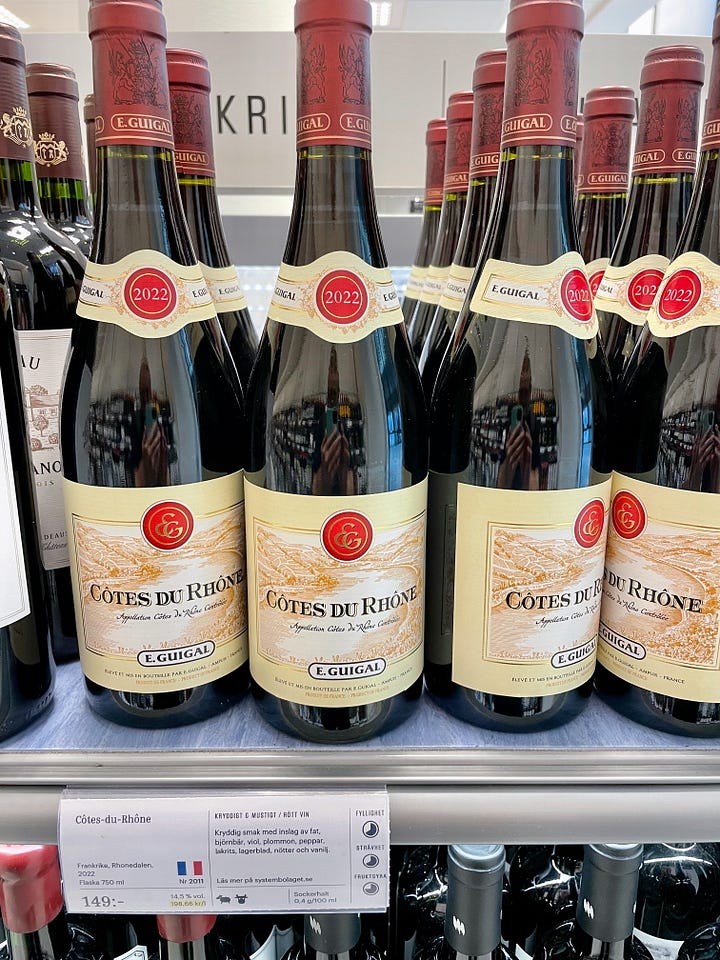
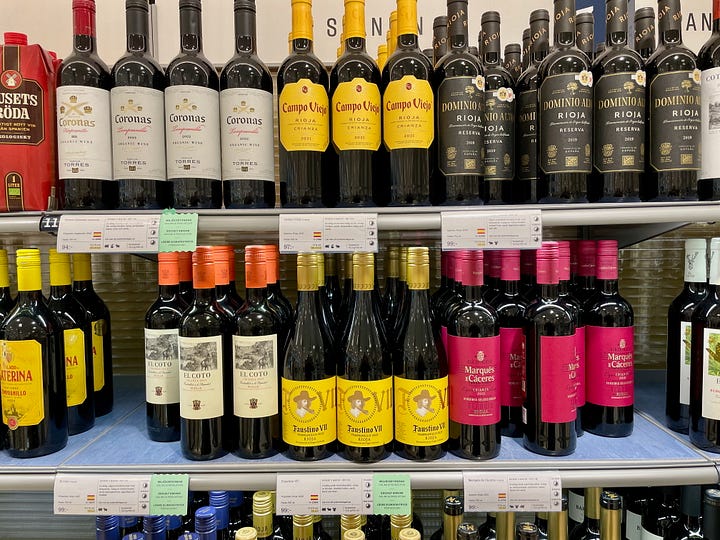


Not everything in Jönköping is a chain, however. There are lovely little businesses run by people with adorable names like Egert, Ulf, and Affe.
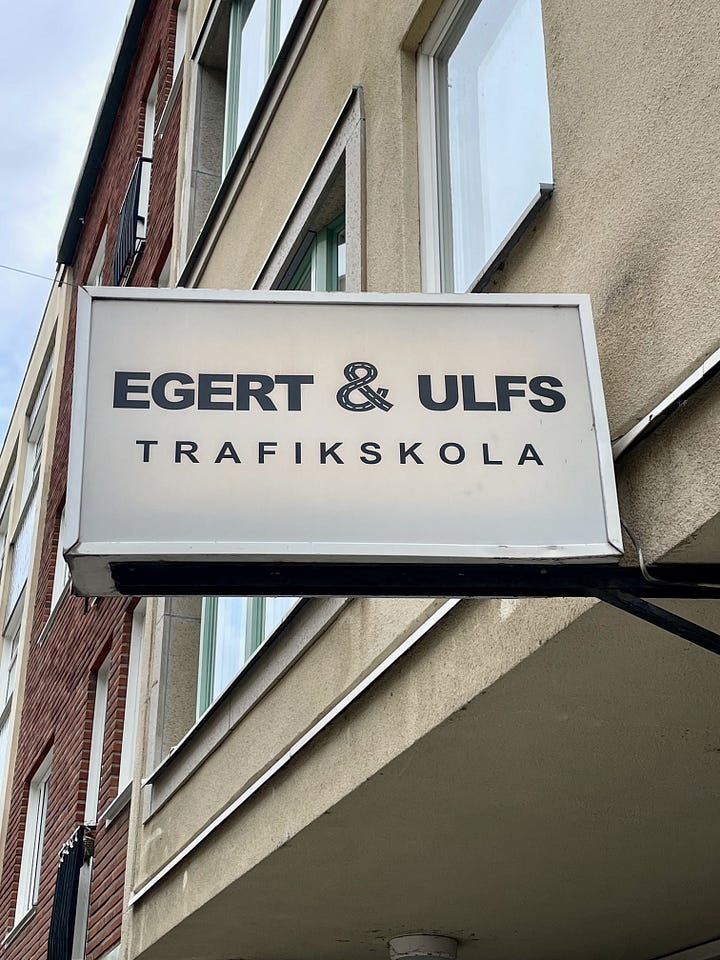
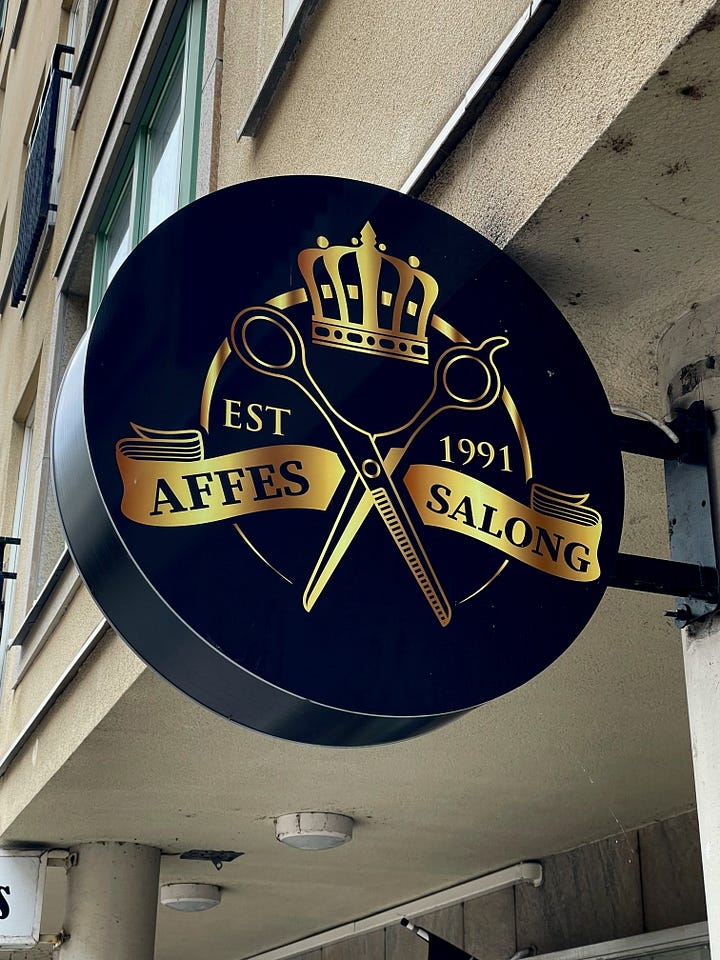
And there are spectacular buildings constructed centuries ago, reminding us that Jönköping has been a trading center for a thousand years. Nowadays, its location roughly equidistant from the three major metropolitan areas of Sweden makes it a natural hub for transportation and logistics. It is also a center for industrial fairs and conventions, but I’m more interested in the lovely wooden houses from the nineteenth century.
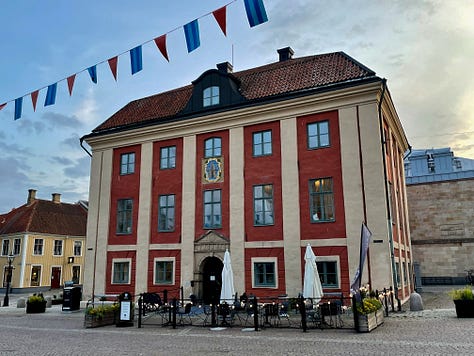
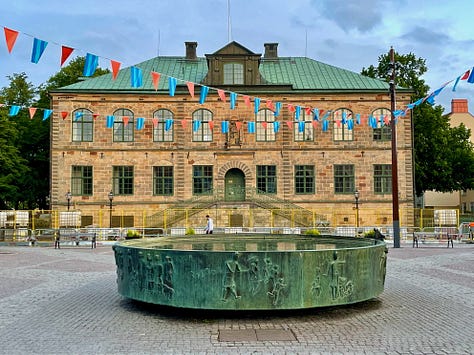
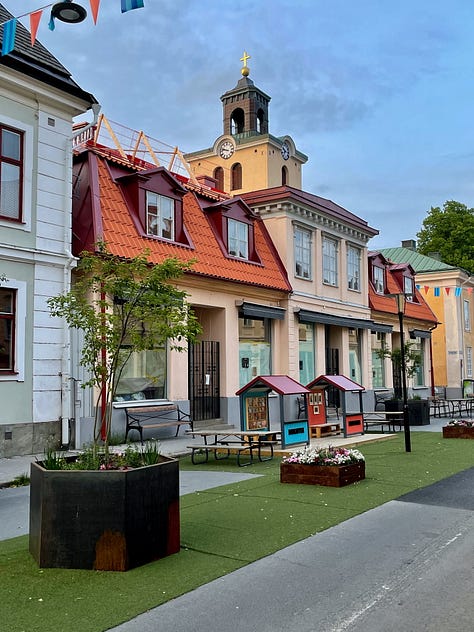
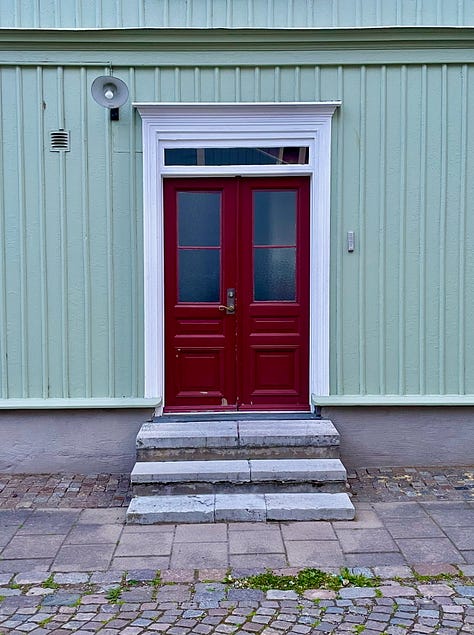
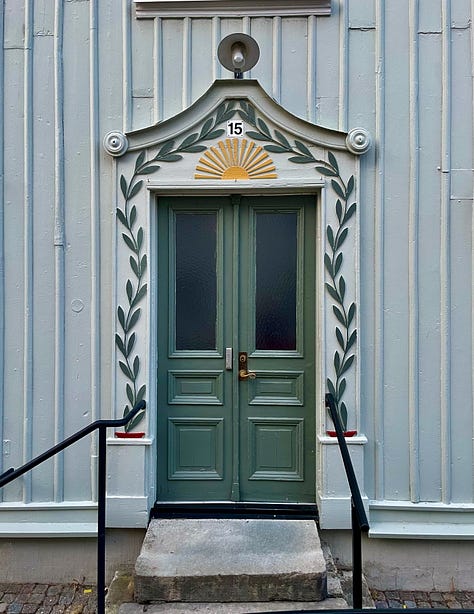
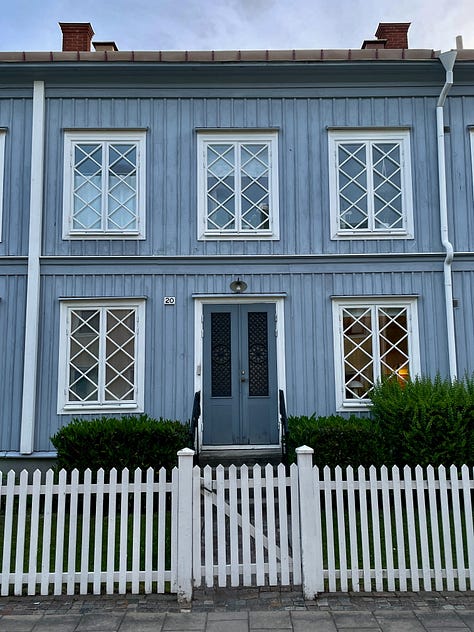
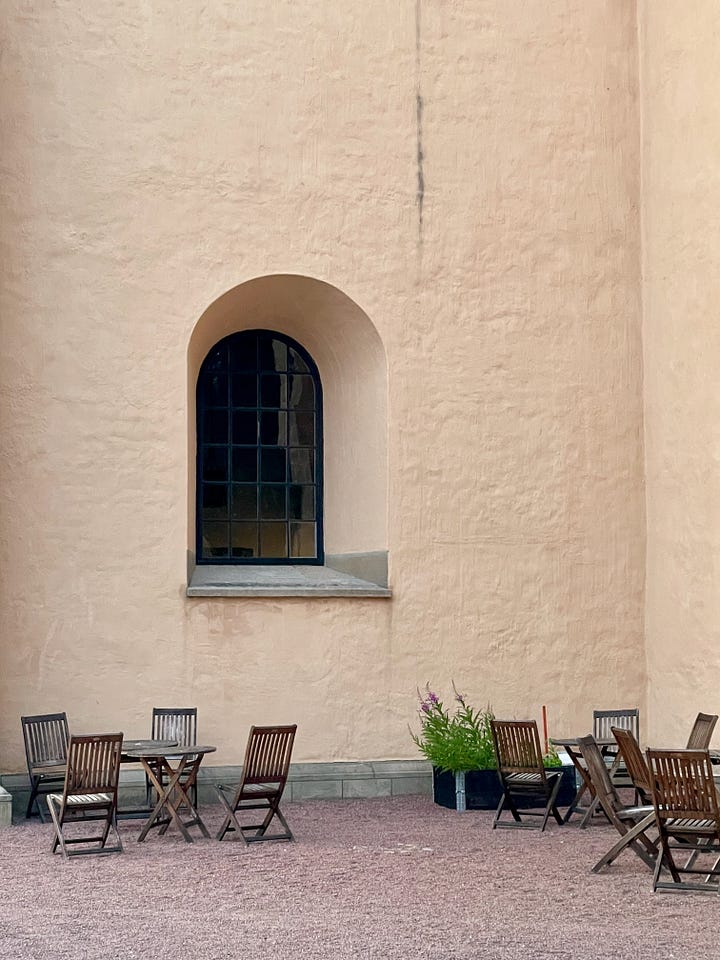
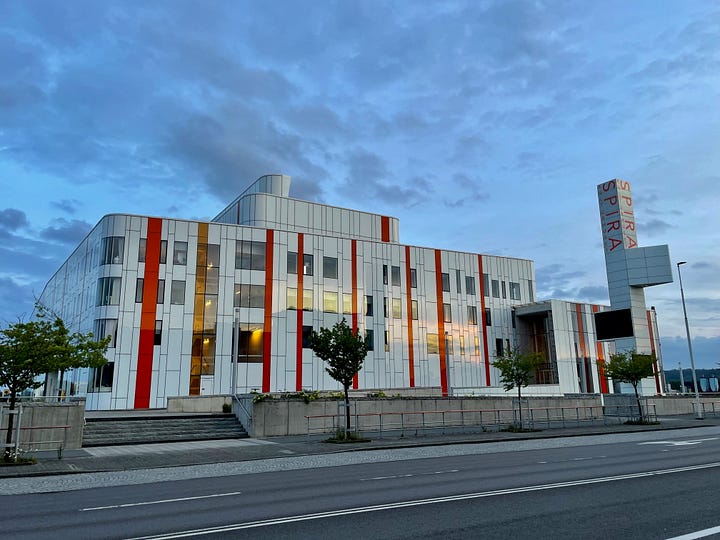
At some point, I had to go to bed. I slept well in the comfort of “The Big Hotel”, as its name translates. Breakfast brought several experiences.
First there was the shock that, at 6:35 AM, the breakfast room was filled with people. The Swedes get up early! They were milling about, getting coffee and piling plates with eggs and bacon. Or they were having yoghurt (luckily, the hotel provides it, seeing as how they were not allowed to travel with it) with müsli and berries.
Then there were the foods with amusing signs, such as the very, very Swedish filmjölk, which a sign translated appetizingly as “sour milk”. I also smiled at smörgåsgurka (pickles), which they had translated directly as “sandwich cucumber”. Another sign that didn’t seem to be energetically drawing people was “Over Night Oats”.

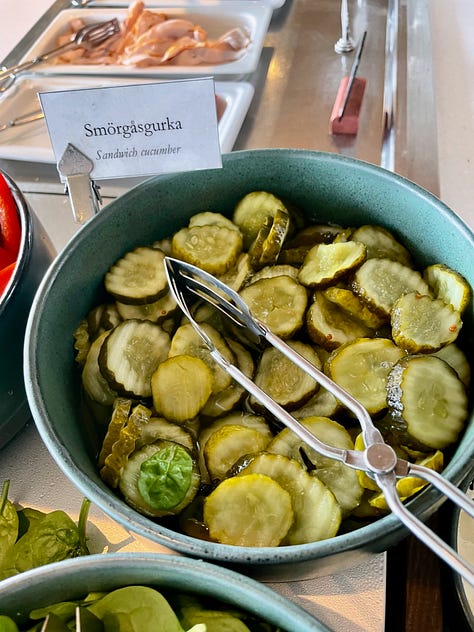

Sufficiently fortified and amused, I set off to the university to give my workshop on effective communication. I won’t bore you with any details about that, though, as we are here to talk about Jönköping.
The university (technically a högskola or university college) turned out to be wonderfully modern and beautifully designed. Its specialties are technology and education, and there is a real push at present to create synergy between research and industry. It seems to be going well, from my outsider perspective.

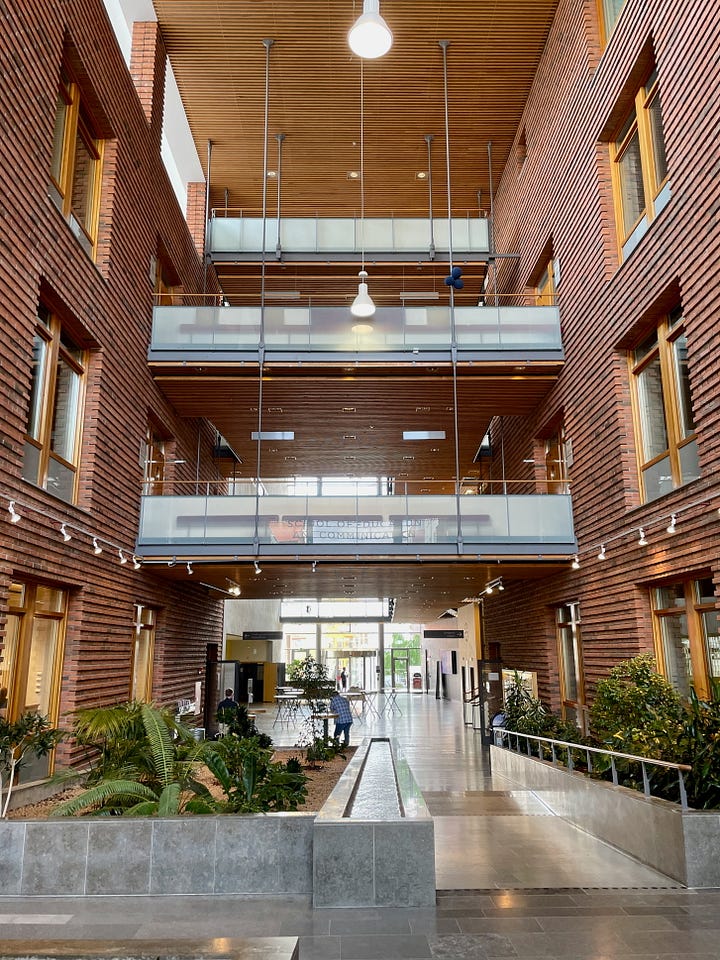
It was a long day, but a good one. Afterwards, I went out for a drink with a group of lovely PhD students, from whom I got the sense that, while Jönköping is a nice city, it is simply not large enough to have what one might call a “cultural scene”. I could sense their frustration, though of course they didn’t complain openly about it.
I then retired to the bar in my hotel (Bishops Arms is a chain that I do love, I must confess) to congratulate myself with an unfathomably expensive craft beer and a hamburger.
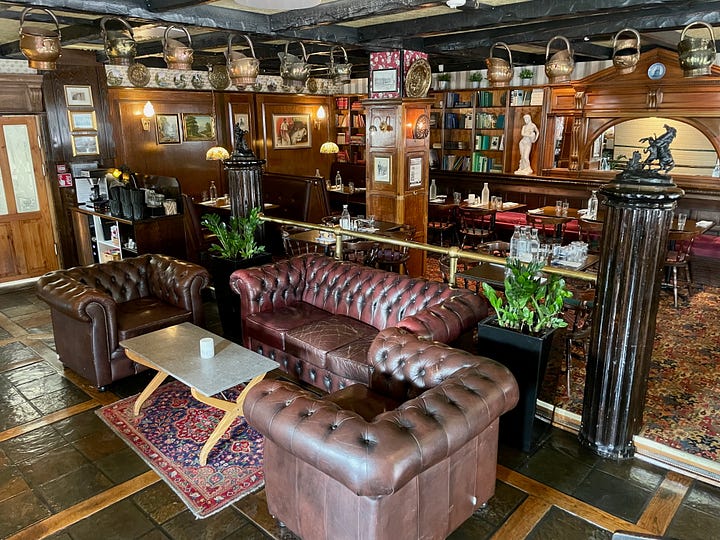

Then it was time to say goodbye to Jönköping. Back to the transit station at the tippy tip of the great lake, to await my bus.
As I always do, I asked myself: Could I live here?
Surprisingly, the answer this time was, “I already have”. There is a uniformity to life in Sweden that makes me feel that, barring the far north, it is a known quantity. I have loved it at times—for the simplicity, for the security, for the effortless flow of life—but I am now happy to have moved on. Thinking about a discussion I had with Elizabeth Coleman, I realized that, despite all of its material inferiorities, I am more drawn to the chaotic but joyous life of Lisbon.
So, Jönköping, it was lovely to meet you, and I hope to see you again. But I think I am happy to be going home now.
If you enjoyed this little travel piece, you may also enjoy the following:





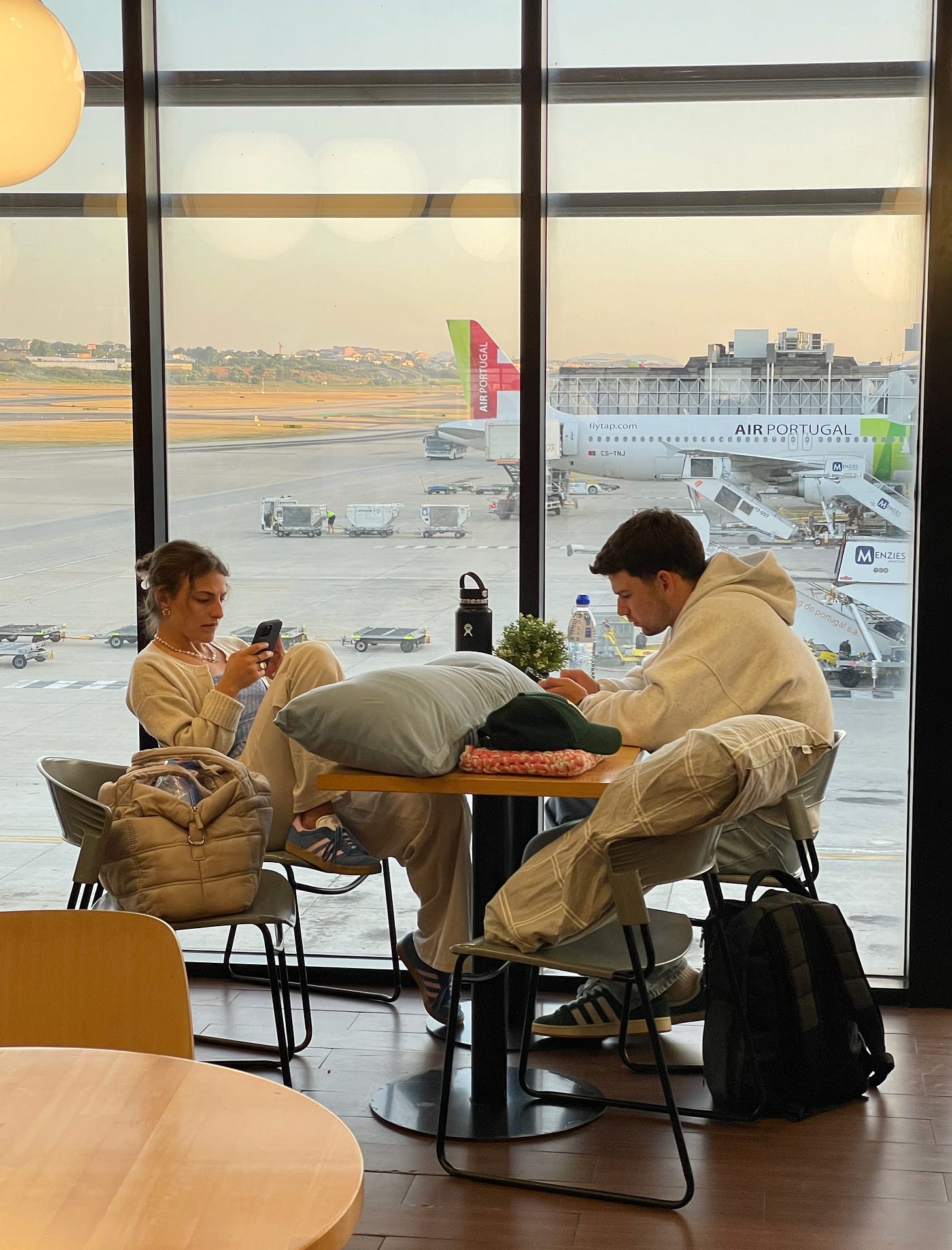



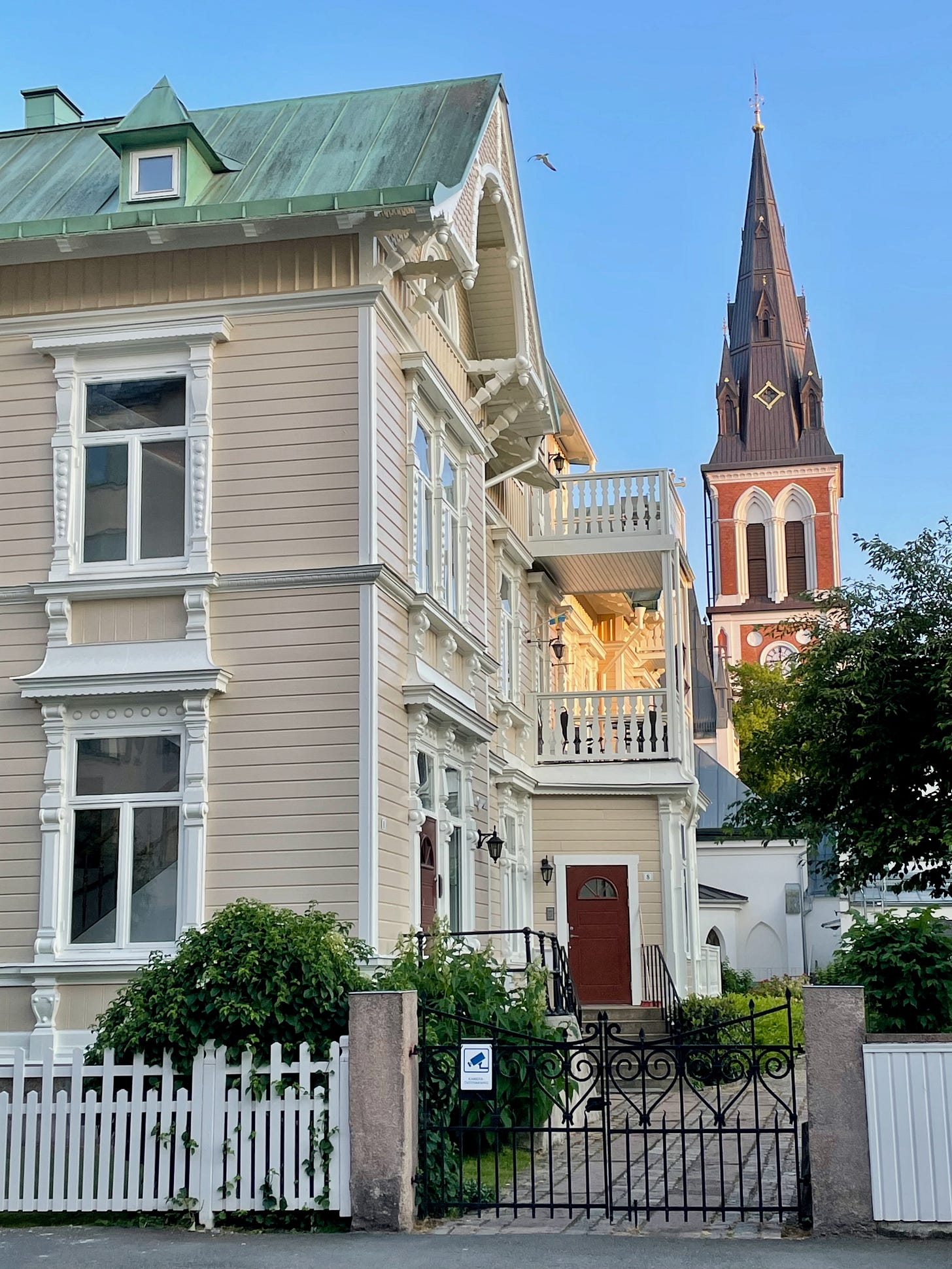
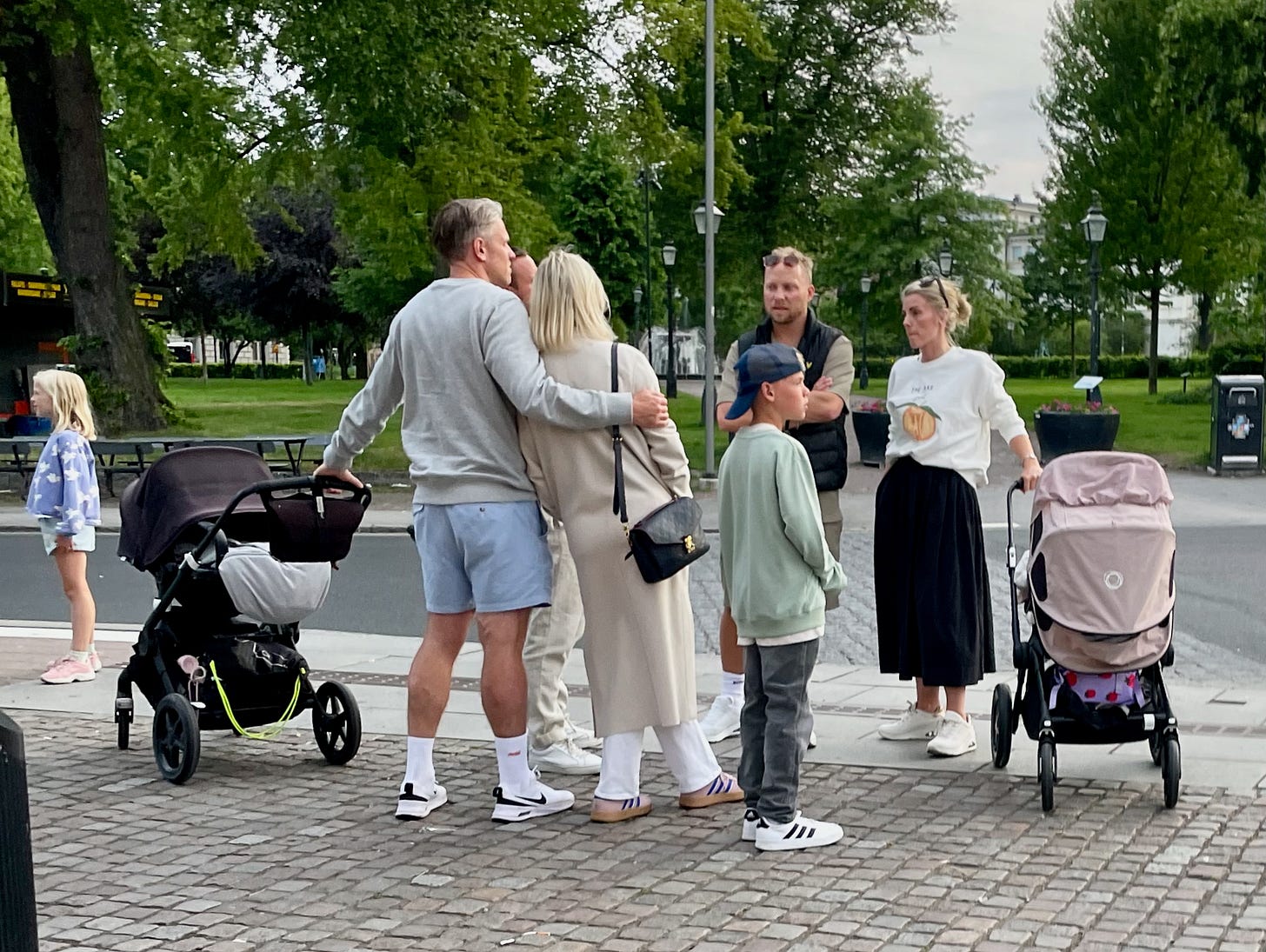





Wonderful post Gregory... and those Elizabeths follow you everywhere it seems!
The photos really bring this alive - I love the variety of all the architecture. I also notice just how clean everywhere is - no trash or anything to mar the streets. And I also notice just how the people are so... blonde!
As far as the expense of alcohol and food (and anything else) goes, I wonder if the salaries there match the expense, or whether it really is expensive for residents too?
I'm also fighting myself not to add the apostrophe in Bishops Arms... oh heck it needs it... here you go... 'Bishop's Arms'. Unless there's more than one bishop, in that case 'Bishops' Arms'.
I completely understand what you mean about the smell of 'home'. Leaving Southern California 6 years ago, I hadn't smelled anything like it until I went to Kew Gardens in London, and stepped inside the Princess of Wales Conservatory with its desert and mediterranean plants. My daughter was with me, and we both immediately breathed in, looked at each other, smiled, and said 'this smells like home'.
And I think you may have just answered a question I asked in a previous comment on a different post about where 'home' is for you. It is possible to have lived somewhere and called it home once, and then to move on, joyously, to somewhere else, and for that to become home with no looking back. I get that completely.
P.S. My favourite photo is the dilapidated houseboat. Now that's a place I would love to do up and call home for a while...
Enjoyed your Swedish tour. Possibly, you have outgrown your homeland and need the adventure of a new place. Portugal. Comfort and order can sometimes be overrated. Though, I think I would miss the architecture of your Swedish town. But Lisbon ain’t so bad either!